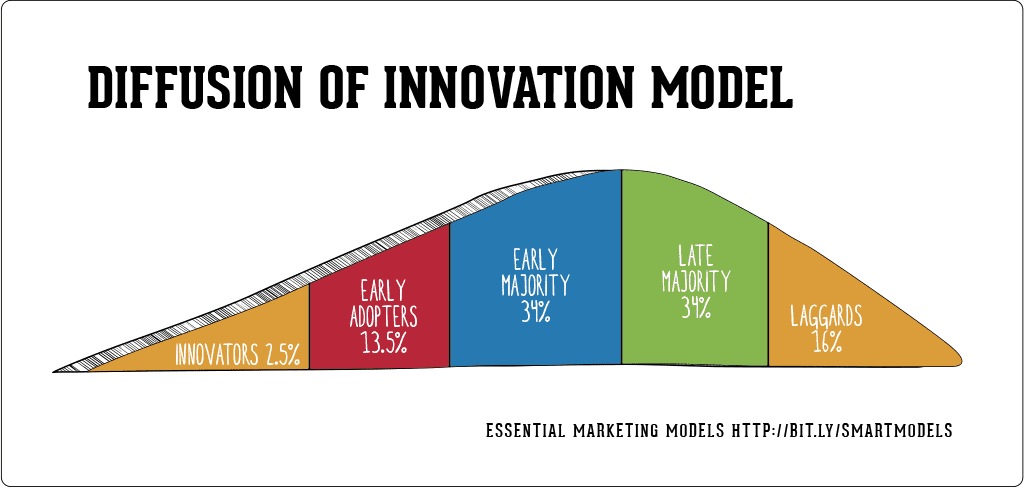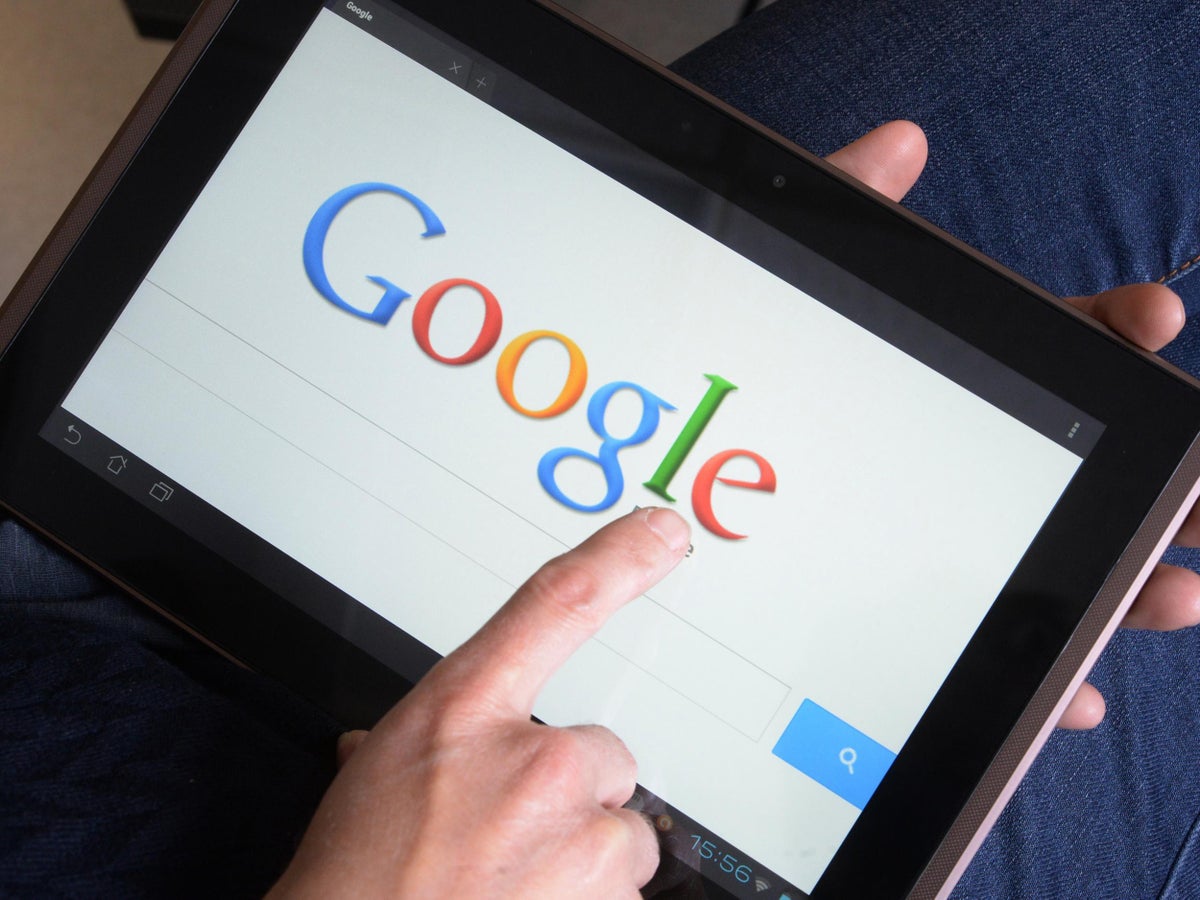Ethan Parker
9/15/21

Google has been adopted heavily overtime and has seemed to continually be going up when it comes to users and people being on Google more often. Some people have decided to use Google quickly, when it first developed, and some have decided to wait a while to use Google, as well as there are people who will ultimately never end up using Google, but that is their decision and I'm going to discuss who'd choose and do what based on Google and their advancements over time.
The pioneers for Google or search engines in general were not teenagers but the younger generation at the time which was around 25 years old. Google was founded by Sergey Brin and Larry Page, who were both the age of 25 when they had the break through of Google. The pioneers were people that wanted to be able to do something such as search the web and Larry and Sergey figured it out. They were both in College at Stanford University at the time so I am sure people in their grade and of their age wanted the same thing they did, they were just the ones to complete and create it, hence why they were the pioneer leaders for Google.

The early adopters were the people of the younger/mid age at the time, so from around 18-26 years of age were the early adopters of Google. This age group were the first to begin using Google because for one, it helped college students heavily when trying to find information, therefore it makes since for it to be around that age group because they needed it the most at the time. Google was first launched in 1998 on Stanford Universities server, making it easily accessible for students at Stanford. The founders of Google were around 25 years old, therefore there had to be some form of interest from their fellow college students that lead to the creation of a search engine. 18-26 year olds required the information the most at the time, which makes them the early adopters.
The early majority brought the young generation of kids to the search engine known as Google. The younger generation at the time were most likely in their early years of middle school or just about to head into their first year of high school. The early majority somewhat makes up the largest amount of users that began to use this search engine because they knew what all it consisted of and it was out for a decent amount of time now and not just some brand new search engine that nobody knew about. In the early years of Google, they were building a positive name to themselves because of what was being put out that Google will be able to do and the performance of Google in the early 2000's. Since in 2000, Google began creating many different features to Google, the younger generation, being those 11-16 year olds, knew what they were getting into. Around this time was pretty much the early prime of Google because of the major advancements and the younger generation at the time was able to witness it all and harness the ability to adapt to Google and know how to work it better than most.
The late majority group were the people who realized they need to hop on Google and begin using it more. This group of people were a bit older but they aren't too elderly. This groups age ranges from about 35-45 years old. This group were able to watch the entire process of Google and how it began and grew and eventually as times passed, they realized they needed to become a bit more hip to finding information easier and Google was their resource. Most of the late majority were parents or older siblings of the early majority. With that being said, the late majority sort of always had a feel of Google and what it was all about but they never really committed to it and eventually they'd have to because of all the advancements that Google was making, the discuss of Google going around, and the easily accessible information on Google. Over time Google has grown heavily and the late majority adopters did not want to be the first to test Google out, they did not have any reason to test it out and they did not want to waste their time. When seeing the advancements made to Google and what all features it had to it and with the early adopters and the early majority migrating towards using Google, the late majoity had no reason not to begin using Google for daily needs.

The last group that never quite began using Google or got completely adapted to it were the elderly (the laggards). The elderly wanted to stick with what they knew, they did not care about this new search engine that'd help sort out and find information because they were happy with what they already knew how to do and they do not want to commit to something new and lose their reliable resource of information such as newspaper and ad flyers that has been helping them find information for years. The elderly were also not so hip to technology and they tend to avoid new challenges that have to do with technology such as a new technical way to find information. In the eyes of the elderly, which are from around 60-80 years old (and older), they had their way to find information and they did not believe Google was either good enough to change or if Google was worth taking the risk of changing their source of information. Since they are the laggards, they never really come onto Google and decide to stay with what they have been doing over the years instead.
To many, Google caught on and began to spread quickly because they were not so focused on selling ads, but they were focusing on helping many find what they needed to find as well as displaying relevant ads that many wanted to see. Google was helpful to many because they had a good amount of information that came quickly and it helped a ton of people when looking for something on the internet, especially college students at the time. So many people decided to become early adopters because they knew Google would be great but they wanted to be the first ones on it. The early adopters had a belief that Google would become reliable and useful for them so they decided to get to using Google early which helped them in the long run because as other decided to use Google later down the road, they knew how to navigate it easier and look up certain information to find certain resources. People are late adopters because they did not want to be the first to try out this new search engine. Late adopters did not want to risk wasting their time to use something that had malfunctions, therefore they waited until time was right to begin using Google. Late adopters were late adopters because they had to see how Google was going to pan out, they had to hear from multiple views opinions on if Google was a good search engine to use or not. After weighing out the positives and maybe a few risks that were at hand, late adopters eventually found themselves using Google for the benefit of themselves. The people who did not become adopters did not trust Google and they felt as though they had everything figured out already and did not need to change how they found their information. Laggards, or people who did not adopt Google at all most likely weren't too good with technology and were comfortable with how they were finding information. Although, Google was not perfect, Google had many failures and downsides early in their career and late in their career as well. The main negatives that users take away is that store your information to better help you with searches (well that's what they say) and they hold your personal information. Many do not give this much attention because they find it helpful at times, which it can be. Many benefit from using Google due to the quick sources at hand that come in an instant and a variety of different sources one is able to use at a single time, al with different informative information.

No comments:
Post a Comment